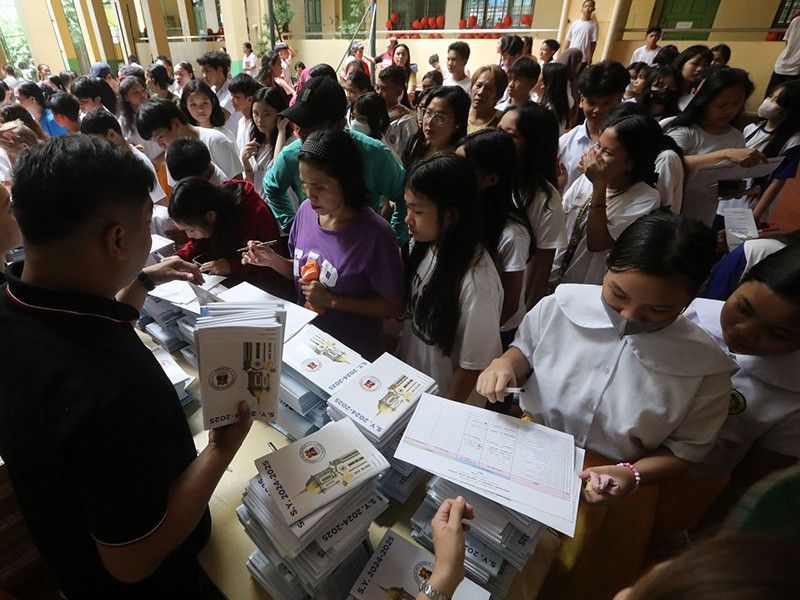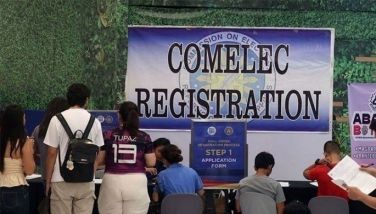62% of high school teachers teaching outside their field, new report reveals

MANILA, Philippines — More than half or 62% of all high school teachers in public schools are teaching subjects they did not major in — a mismatch blamed on the department’s practice of assigning subjects based on availability rather than specialization due to a limited budget for hiring.
Data presented by the Second Congressional Commission on Education (EDCOM 2) before the House basic education panel on Thursday, August 29, also show that over half of all teachers in science have no training in the subject, stoking concerns about how students will fare in the science-focused Programme for International Student Assessment (PISA) test in 2025.
These findings were drawn from EDCOM 2's analysis of DepEd data covering around 700,000 of over 900,000 teachers in the public school system. It reflects the latest number of teachers as of school year 2023-2024.
The Department of Education (DepEd)'s hiring practices at the local level contribute to the problem by not informing public school teachers ahead of time about the subject assigned to the position they are actually applying for, said EDCOM 2 Executive Director Karol Yee.
“When they apply for teacher vacancies, the subject they’re supposed to teach is not indicated… Several have complained of having to teach subjects they did not train for in college,” Yee said in a mix of English and Filipino.
The problem boils down to a lack of plantilla positions for teachers, said Vladimer Quetua, chairperson of the Alliance of Concerned Teachers (ACT).
“The budget [for hiring] is actually not enough. [DepEd’s schools division offices] know this. For example, for English, there’s a lack of teachers there, but because they hire a lot of teachers they believe to be ‘good enough,’ they let them teach,” Quetua said in a mix of English and Filipino.
Despite government initiatives such as the Department of Science and Technology's Balik Scientist Program, which encourages math and science specialists to teach, many are assigned by DepEd to subjects outside their areas of expertise, said Rep. Roman Romulo, chair of the House basic education panel.
“Our question is, we're preparing for science to prepare students for the PISA test in science, but data shows that more than half of the science teachers do not have a science background,” Yee stressed.
DepEd Undersecretary Gina Gonong, who handles curriculum and teaching, acknowledges that there are several cases where teachers have to teach the subject they did not specialize in. But the problem would also have to be dealt with at the division level, Gonong added, as it is the offices that decide how they appoint and hire educators.
No more business as usual
Discussions of teacher-subject mismatch were brought up when lawmakers asked DepEd how it plans to implement its proposed eight-week learning recovery plan, which will pluck out students from their regular classes for a continuous and intensive focus on numeracy and literacy.
This plan is housed under House Resolution 1805, which was filed by EDCOM 2 commisssioners Romulo and former House member Kiko Benitez, who was recently appointed chief of the Technical Education and Skills Development Authority. Both are EDCOM 2 commissioners.
The resolution, which the committee approved on the same day, calls on DepEd to suspend the regular school schedule for eight to 12 weeks to allow the uninterrupted implementation of the learning recovery program. This is because “all the results show that we need interventions for reading comprehension and math that is age-appropriate,” Romulo said.
DepEd's proposed learning recovery plan will include a special science program alongside a targeted literacy and numeracy curriculum for 1.6 million students across grades 7 to 10, Gonong said. This is on top of other learning recovery programs that DepEd has rolled out since 2023, such as its national programs on mathematics, reading and science, as well as the weekly Catch Up Fridays.
Ideally, after eight weeks, students who previously could not read would be able to understand basic sentences. They would then proceed with their regular schooling and receive more targeted interventions, Gonong added.
"That is the intention of the House resolution... We are no longer fixated on their grade level. For some, the most important thing is that when they finish Grade 12, they can read,” Romulo said, adding that this could prevent any more drop-outs due to lack of interest.
In February, EDCOM 2's initial assessment of DepEd's Catch Up Fridays, its flagship weekly reading intervention program, found that teachers’ lack of in-depth training on how to help struggling readers made the program ineffective. Even as DepEd had instructed schools to separate students based on their reading abilities, EDCOM 2 found that several schools did not have differentiated instruction.
- Latest
- Trending































